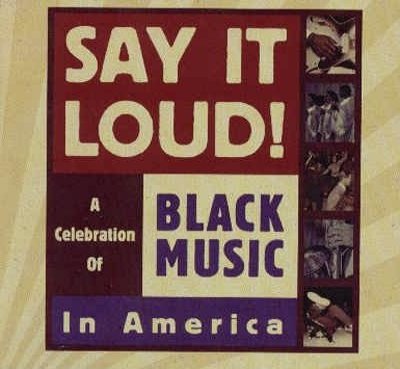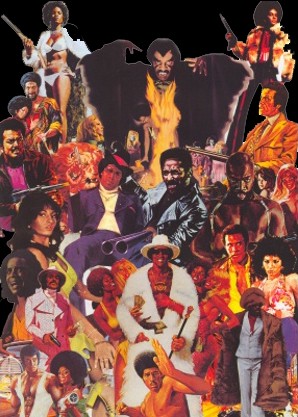When I think of funk, I think of a genre that made a major impact musically and culturally within a very small space in time. Funk suffered an untimely death, some say at the hands of disco, only to be resurrected through Hip Hop. Black folks are the inventors of blues which is the fundamental genre which spawned soul, gospel, and rock. Funk's essence is a conglomerate of all of the above. However, it is often the forgotten stepchild of black music history.
Why “stepchild”? I recall Nelson George in a talkback after a viewing of his film Finding the Funk screened at Afropunk this past summer, referring to Funk as the stepchild of soul and R&B. I decided to explore this idea a little bit further on my own.
Stepchild is defined as one that fails to receive proper care or attention. In the world of music, funk definitely was shunned by the mainstream, living on the outskirts of the music world. Radio stations were not open to playing the funk nasty irreverent music. Funk was always being improperly classified as R&B which creates a misinformed knowledge around what Funk music truly is.
Funk was born of blues people. It came from the street, the hood. There was something free, edgy, and even uncouth about this movement. It came from the blues people who were subjects of an unchecked unbalanced system. Yes, jazz musicians were referring to their sound as early as the 50's and 60's as "funky". By this, they were describing their music in a way that separated it from the standard jazz composition. I believe that it was a word that best illustrated a “funky” groove emitting something that would wake someone’s spirit in an invigoratingly liberating way. Later, James Brown would be the founding father of Funk as we know it today. Brown was from the street aka a disenfranchised, marginalized individual who became an innovative icon. He had a formula for Funk which is: jumping things off on the one. Starting with the one hits hard. There is no dilly dallying around with such a definitive beginning for a jam session or song. From what I gather, this was the only hard rule of Funk. You see, everything was a symphony of percussive horns, thumping bass and everything in between. Funk is a lot like jazz in the fact that much of how it was derived is centered around improv.
Culturally, Funk brought “outlandish” to the world of music. This alone created an outsider element for the genre. Predominant culture was still inherently plagued by playing it safe holding tight to their mores and American obligations. A large portion of the population was not interested in ruffling feathers or straying away from their comfort zones. Funk incited a negation of normalcy. Once the Funk mentality is adapted, a shift occurs and conformity no longer tightly grips the individual. Funk became the outspoken voice of the black community during the 70’s. It acted as a savior to a culture of people who needed to slough off the troubles of the turbulent 60’s filled with assassinations, racial assaults, riots, war, etc. Bands like Sly and the Family Stone challenged racial and gender norms by consisting of an integrated group of musicians that included women. Here comes that stepchild Funk stirring things up by living outside the proverbial box. Along comes Parliament aka Funkadelic aka P-Funk that just took things to another level. George Clinton lived wild abandonment. He constructed a subculture that didn’t give a fuck about compliance. It was raw and honest. America was in a stupor, unaware of how to accept this unwanted stepchild called Funk.
Recently on a trip back home to Houston, I went to gather the record collection that I remembered my family owning. My grandfather, who is now the keeper of these artifacts, watched as I sorted through the small collection of LP’s and large selection of 45’s. His prized albums in the collection were that of gospel quintets such as The Mighty Clouds of Joy. As I was looking through the albums, there was quite a bit of Funk in the pile, he commented: They didn’t do any singing on those records. I just chuckled to myself realizing that Funk was not a well received genre. People, like my grandfather, believed it to be noise without substance which leads me to write about the actual message of Funk music. Funk was, at times blatant political statements and at other, inadvertent musical journeys through existentialism. In order to receive such depth of expression, one’s mind had to be open and broken of the systematic structure that imprisons thoughts. Funk was an explosive expression through music.
All in all, Funk was not easily digestible for most of society. The conservative listener loved things packaged in the form of soul through companies such as Motown. Even Motown had to jump aboard the Funk train as it became a trend of the time. There was a fusion of funk and jazz as well. The jazz purists could not get with this new electric jazz sound that dwelled on the outskirts of bop. Jazz had become electric adding synthesizers and electric guitars to the roster of traditional instruments bringing a new funk stankin’ attitude to the genre.
No other genre wanted the Funk to move in a shift the foundation upon which it was built.
Hip Hop would later embrace and repurpose Funk. Why? Hip Hop and Funk have similar contexts by which they started. Hip Hop comes from the blues people who were disenfranchised and marginalized. There were cultural, political, and social implications that helped to create this new genre. Reaganomics was underway, poverty was prominent, the crack epidemic was surfacing, gang wars and burning buildings raged in the ghetto. It was formed out of necessity as was Funk. Youth of color was responding to their experiences in a newfound way. Early Hip Hop producers would use Funk music as the crux of a beat. It was the perfect pairing and absolute homage to the masters who created the Funk sound.
The cycle of life reminds us that things come and go. They die and are reborn time and time again. Funk was that genre that lived for a brief time, but left a lasting impression on the world of music. It may not have been accepted in various circles, but it was truly a genre that expressed unabashedly; living in the realm of liberty.










